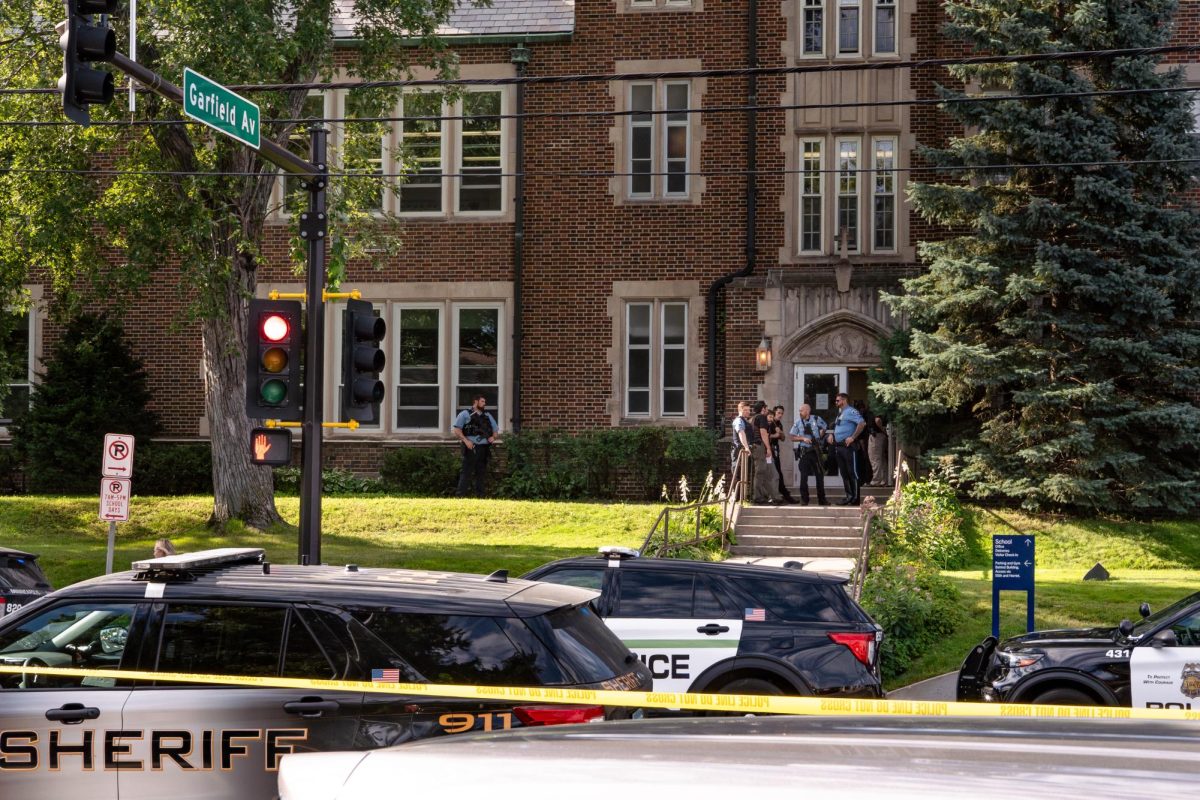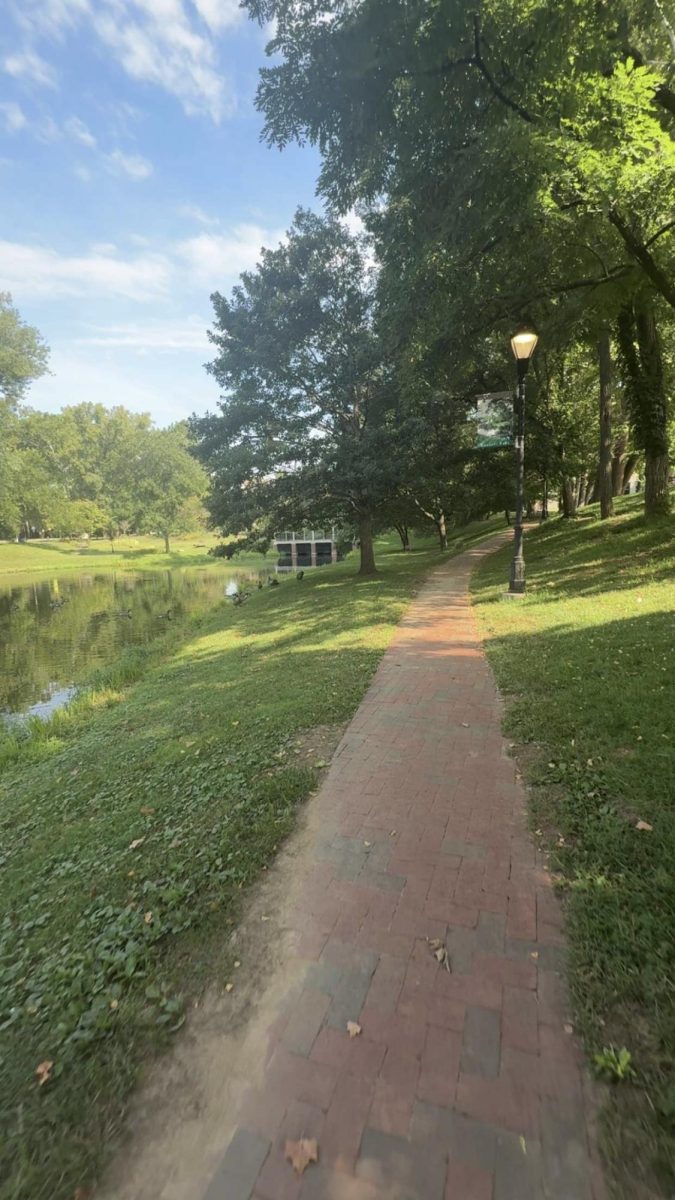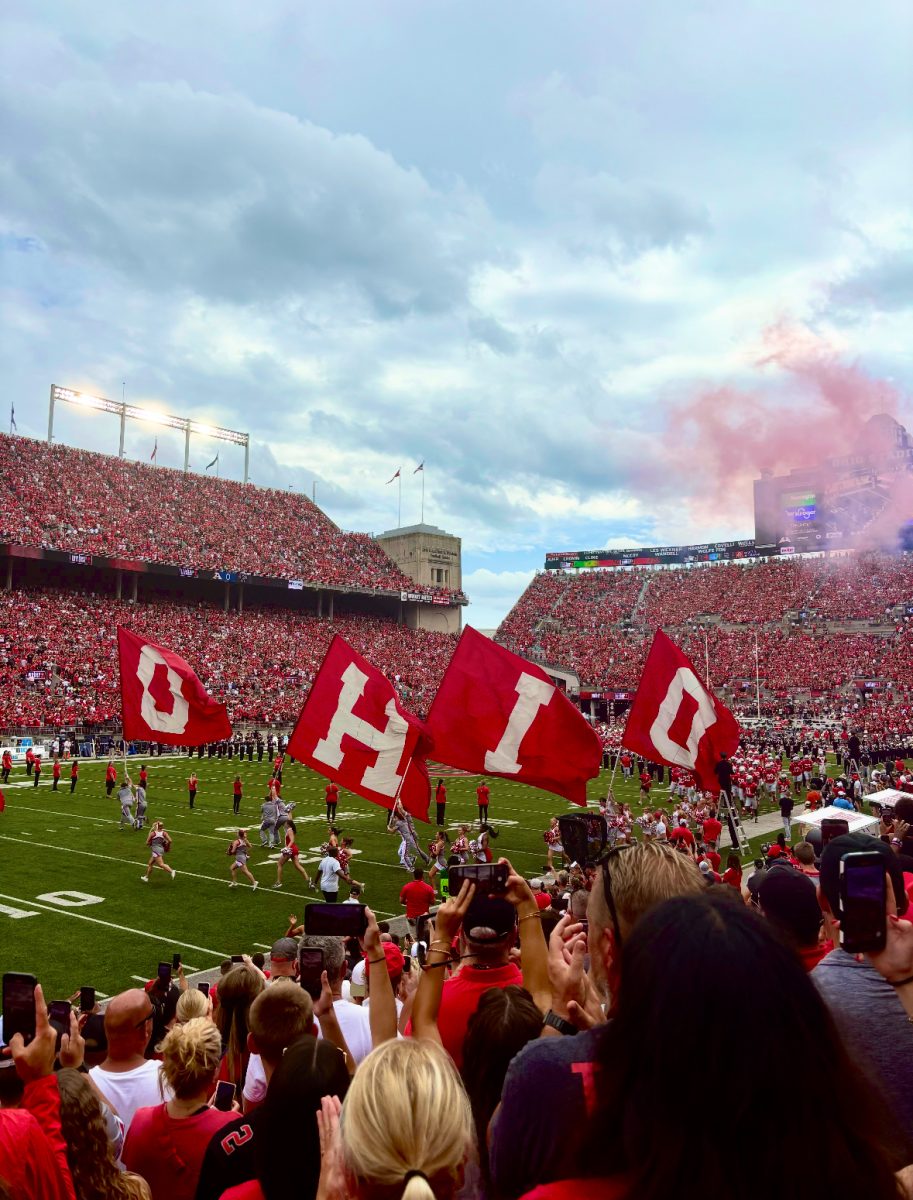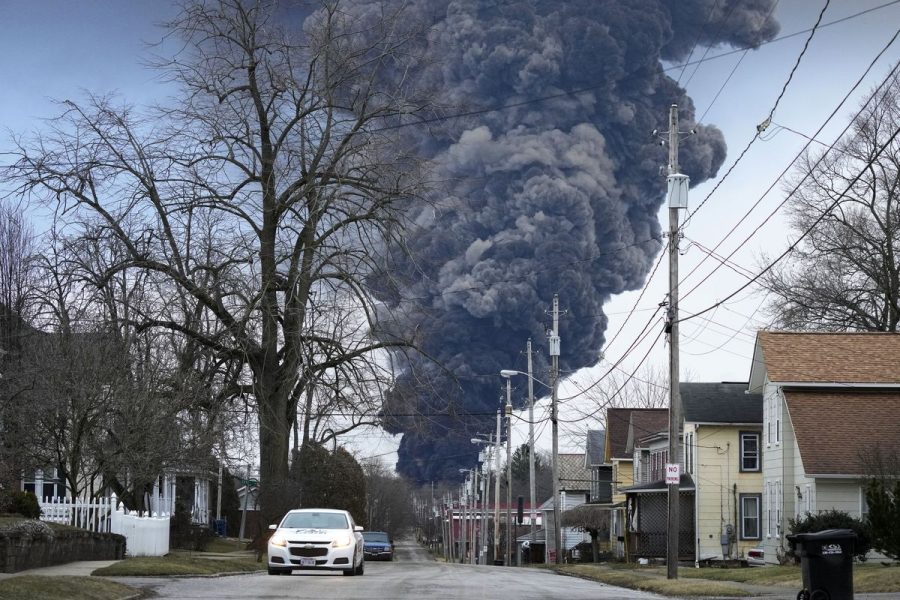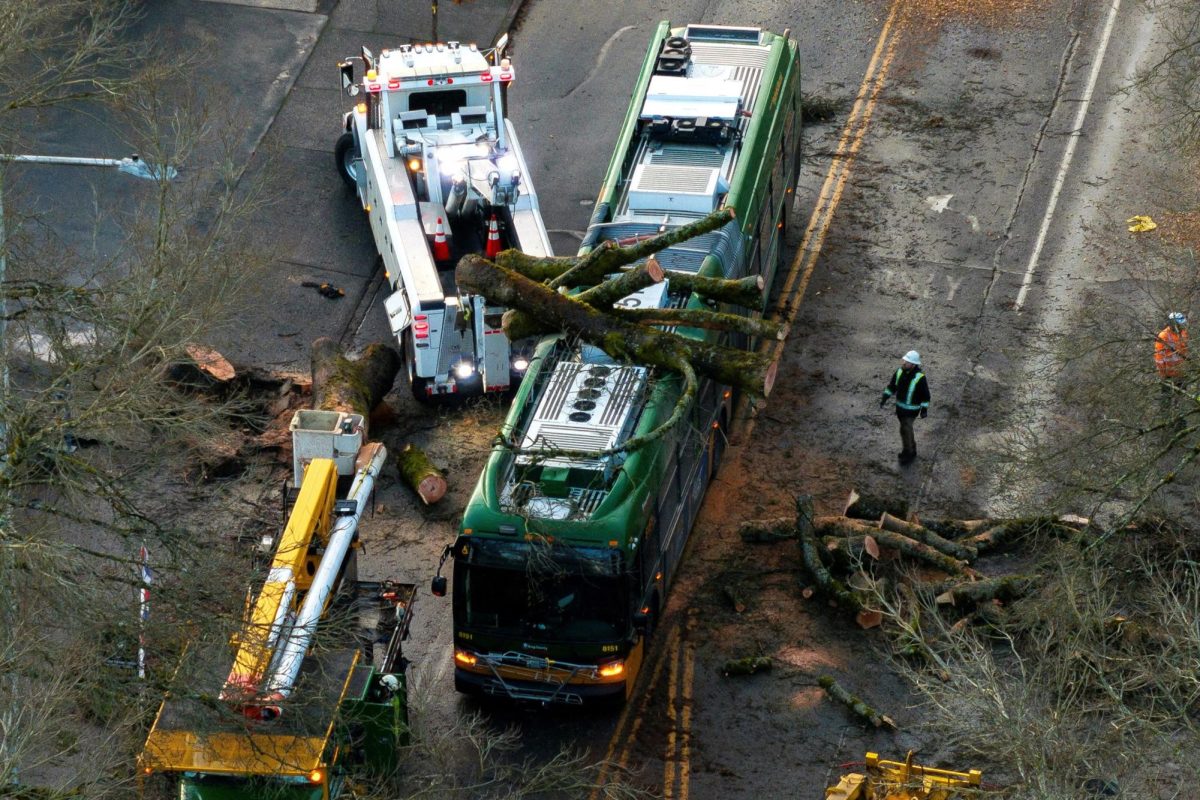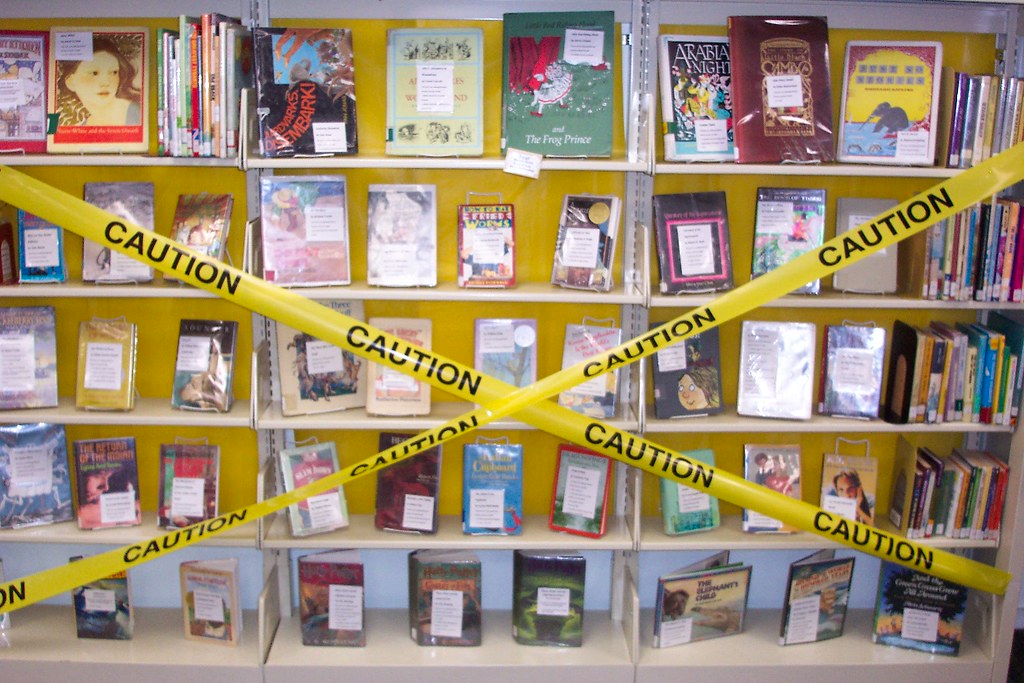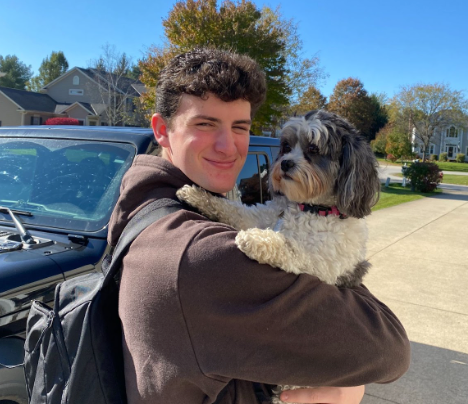A small town on the Ohio-Pennsylvania border, home to less than 5,000 residents, is making headlines worldwide because of a train derailment. A train carrying toxic chemicals was passing through the area and it derailed, causing cars with dangerous contents to spill and infiltrate soil, water and now the air. The chemicals were burned by local officials, causing a massive cloud of black smoke, even visible to planes above the clouds. This small town in Ohio is home to potentially the worst ecological disaster in American history, and one of the worst in the world.
Hundreds of thousands of gallons of vinyl chloride were spilled during the derailment on Feb. 3. Vinyl chloride is primarily used to make polyvinyl chloride (PVC) plastics with a very wide array of uses. Vinyl chloride is incredibly toxic, flammable and dangerous when consumed in any form; it has a boiling point of about eight degrees fahrenheit, so it is transported in controlled containers to keep it in its liquid form at cold temperatures. After the derailment, the liquid spilled out and began to boil and spew hot gas. Along with vinyl chloride, chemicals like ethylhexyl acrylate, butyl acrylate and ethylene glycol monobutyl ether were also released.
The waste produced from this process is incredibly toxic, and ingesting it can lead to a number of health risks, cancer being one of the more deadly. Residents of East Palestine and the surrounding areas have reported feelings of sickness, nausea, headaches and more. One of the most compelling pieces that highlight the danger of this event is the animals in the area. Plant Based News reports that thousands of wild animals have died or fallen ill in the surrounding areas. Waterways near East Palestine are covered in dead fish and the water they are in looks to be contaminated with oil and other contaminants, even to the naked eye. Mary Mertz, the director of Ohio’s Department of Natural Resources, claimed that there was “no evidence” that the train derailment had affected land animals, but residents and farmers maintain their statements that animals are dying in direct response to this disaster.
The Occupational Safety and Health Administration (OSHA), responsible for maintaining and enforcing safe working environments, set the limit of vinyl chloride exposed to as a worker during an eight hour shift at one part per million average. Prior to the spill in Ohio, the largest recorded spill of vinyl chloride in history was located just a few hours east, in New Jersey, where 23,000 gallons were spilled, but it did not catch fire. What makes the Ohio crash unique is that it had a spill nearly five times larger than the previous largest in history.
Following the crash, local authorities decided to burn the remnants of the spill. The “controlled burn” produced a massive cloud of black smoke that stained the satellite image of Ohio. It burned for several days, releasing dangerous chemical compounds into the air, mainly hydrogen chloride, which was banned in chemical warfare after World War 1. Residents within a one mile radius of the burn were temporarily evacuated, but were welcomed back just five days later. Residents are skeptical about the safety of being in their town.
The Environmental Protection Agency confirmed that the Ohio River, which supplies water to millions of people in 14 states, has been contaminated by these chemicals. Residents of East Palestine had been told to boil their water to make it safe to drink, but experts strongly advise against drinking it at all. One expert says that boiling the water may kill bacteria, but it will not remove contaminants. On another note, the water has potential to contain chemicals that may be harmful when boiled, so experts are urging people to drink only bottled water, and not from their faucets.
The CEO and President of Norfolk Southern, Alan Shaw, insisted that the company will do everything it can to help limit the side effects and aid the residents effected by the spill. Residents of East Palestine have been upset that Shaw was recently seen smiling and walking around his 4.2 million dollar home in Atlanta, Georgia, which is just one of his several mansions across the country.
According to Daily Mail, representatives from the railroad company bailed on a community meeting last week, as experts claimed Norfolk Southern did not actually need to conduct a ‘controlled burn’ of two train cars carrying vinyl chloride to mitigate its effects. Shaw claims that Norfolk Southern is committed to making their mistake right, despite going against the word of experts to burn the chemicals. Shaw and other Norfolk Southern executives appear to have no sense of urgency to fix this massive environmental issue.
The tragedy and danger of this event can not be understated. This event has the potential to harm and even kill people who are in the surrounding areas because deadly, carcinogenic and flammable chemicals have infiltrated the soil, water and air. This event also highlights the need for greater safety measures and stricter regulations for the transportation of hazardous materials by rail. Norfolk Southern, the company responsible for the spill has a gross value of $12 billion, but originally offered just $25,000 in damages to residents of East Palestine. As of late February 2023, Norfolk Southern has donated over $1 million in clean-up and reclamation efforts.
Norfolk Southern has been known to lobby the government to lower regulations on railroad transportation and make their business easier, at the cost of the environment. According to ABC6 News, Norfolk Southern has pledged almost $100,000 to republican political candidates in Ohio over the last six years.
This disaster was completely avoidable according to the NTSB; it was fueled by capitalistic corporate greed and negligence of safety protocols. The incident’s long-term effects on the environment and the health of the community are still unknown, and the cleanup and remediation efforts are likely to take several months, if not years. Experts believe that it is essential to prioritize the health and safety of the local community and take necessary precautions to prevent similar incidents from occurring in the future.







